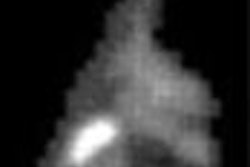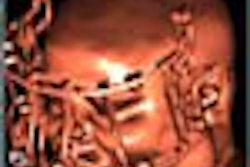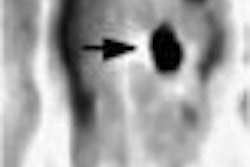DuPont's sale of its pharmaceuticals division to Bristol-Myers Squibb could have a wide-ranging impact in the medical imaging industry, especially in nuclear medicine, where DuPont sells the popular Cardiolite radiopharmaceutical. The transfer of ownership could have a major effect on radiopharmacy firm Syncor International of Woodland Hills, CA, which has had a long-term marketing relationship with DuPont for Cardiolite.
Both DuPont and Syncor have said that they plan to forgo the automatic renewal provision in their existing relationship and explore an extended distribution agreement. Bristol-Myers Squibb has invited Syncor to sit down with the company to discuss future distribution arrangements between Syncor and the potential new owner of DuPont Pharmaceuticals, according to Syncor president and CEO Robert G. Funari. Funari discussed Syncor's relationship with DuPont in a Thursday teleconference.
DuPont announced June 7 that it had reached an agreement to sell its North Billerica, MA-based DuPont Pharmaceuticals division to Bristol-Myers Squibb for $7.8 billion in cash. Although DuPont will retain its interest in Cozaar/Hyzaar, an antihypertensive drug developed by DuPont and Merck, its other drugs will become the property of Bristol-Myers Squibb.
This includes the anticoagulant Coumadin and the anti-HIV drug Sustiva, along with market-leading cardiac radiopharmaceutical Cardiolite and its breast-imaging version, Miraluma. The fate of DuPont’s new Definity ultrasound imaging agent was not disclosed. Definity is still awaiting FDA approval.
Neither DuPont nor Syncor gave any indication of how Bristol-Myers Squibb would handle DuPont’s radiopharmaceuticals or imaging agents. In a June 8 teleconference for analysts and investors, Rick Lane, president of the worldwide medicines group at New York City-based Bristol-Myers Squibb, said, "A number of [DuPont] compounds have blockbuster potential. Sustiva is a great product and a great fit for us.
"Radiopharmaceuticals have good, solid growth potential with really good margins. [DuPont’s] leading product, Cardiolite, is the leading injectible radiopharmaceutical agent for detecting coronary artery disease. It’s an especially strong fit into our own cardiovascular franchise," Lane said. "It gives us another entrée into an important specialty area."
Syncor and Bristol-Myers Squibb will be meeting in the first part of July to discuss the status of the strategic relationship between BMS and Syncor, according to Syncor spokesperson Tim Guttman. Syncor markets Cardiolite and its breast-imaging version, Miraluma, which represent about 40% of the company's consolidated revenue.
Syncor's Funari pointed out, however, that it was likely that generic versions of Cardiolite (technetium-99m sestamibi) will soon come on the market, a situation that could devalue Syncor’s distribution contract.
Meanwhile, DuPont and Syncor said in a joint statement June 19 that they are terminating the automatic renewal provision of their distribution agreement, which gives Syncor preferred U.S. distribution rights. The companies said a consulting firm will assist them in exploring an extended revision of the agreement and other areas of potential collaboration. Bristol-Myers Squibb was not mentioned in the statement, according to DuPont spokesperson Lili Gordon, because the acquisition deal won’t be final until later this year.
"Until then, it's business as usual," Gordon said. "The nuclear medicine industry has changed considerably since [the pact was signed in] 1993, and we are just updating."
Guttman added that the parties will work out terms and conditions that will apply beginning in 2004, when the current contract expires.
Syncor had preliminary discussions earlier this year with DuPont about possibly buying the radiopharmaceutical portion of that company, but the talks were unsuccessful, Guttman said, because DuPont’s asking price was too high. Guttman said he did not believe Bristol-Myers Squibb is interested in selling off its soon-to-be acquired radiopharmaceutical business.
"It hasn’t been discussed," he said. "Bristol-Myers Squibb has a cardiac franchise and Cardiolite fits into that. We don’t anticipate them spinning it off. Based what we’ve heard, they want to integrate [radiopharmaceuticals into their product line]."
An earlier suitor for DuPont Pharmaceuticals was German drug giant Bayer, whose chairman told stockholders in March that Bayer might be interested in the division. Rumors of acquisition talks showed up in news stories this spring. Industry analysts thought at the time that DuPont’s asking price would be to high, and that it would eventually spin the division off.
By Robert Bruce
AuntMinnie.com contributing writer
June 22, 2001
Related Reading
Bristol-Myers Squibb to buy DuPont Pharmaceuticals, June 12, 2001
DuPont closes in on fate of medical imaging business, April 9, 2001
Copyright © 2001 AuntMinnie.com



















